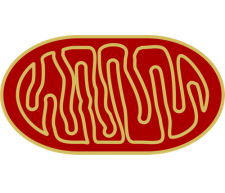CGS-authored

A U.S. fertility specialist, foiled by U.S. regulations, took his tools to Mexico to tweak human cells into developing into the world’s first three-parent baby, an infant born in April 2016 who carries DNA from two mothers and one father.
New Scientist broke the story, reporting that the parents are Jordanian Muslims who had already lost two children to Leigh syndrome, a fatal disease that involves the gradual deterioration of the nervous system, along with pain, gastric distress and, ultimately, respiratory failure, usually in the first years of life.
Unlike many human genetic conditions, though, the gene variants associated with Leigh disease don’t exist in the nuclear DNA. Instead, they are DNA sequences from our mitochondria, the organelles responsible for packaging nutrient energy into a readily accessible form.
We all inherit mitochondria only from our mothers, who pass them along to us as part of the cytoplasmic component of the egg. The children that the Jordanian couple lost thus inherited the disease-causing variants from their mother.
Through quirks of how mitochondria are allotted as an egg is produced, the mother in...



